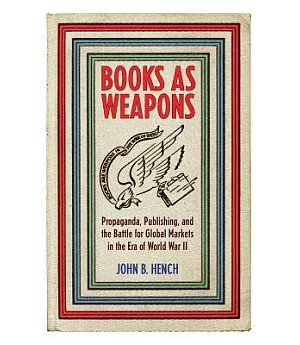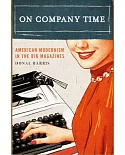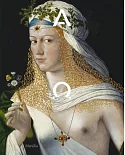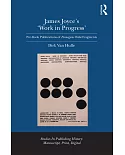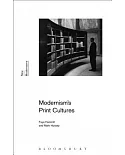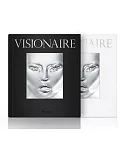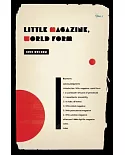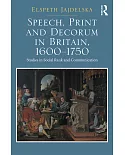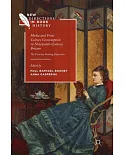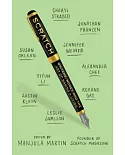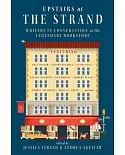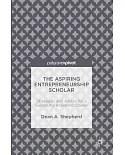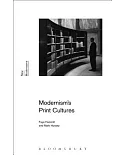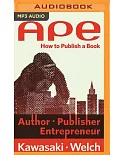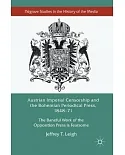"John B. Hench’s invaluable book helps to fill in another piece in the jigsaw of war. It brilliantly assays the high ambitions governments, publishers, and organizations had for the book as a
repository and an arrowhead of civilization and education in World War II---and how these were realized." Juliet Gardiner, author of Wartime: Britain 1939-1945
"Hard on the heels of Gls at Normandy Beach arrived crates filled with American books, published expressly for them and for the people they came to liberate. Thus begins this riveting analysis
of the overseas expansion of the once-provincial American publishing industry during and following World War II, aided and abetted at all turns by the federal government. Meticulously
researched, adroitly conceived, briskly told, Books as Weapons provides an authoritative account of the dissemination of American ideas and values through print as part of its fast-growing,
postwar hegemony." Ezra Greenspan, Edwin and Louise Kahn Chair in Humanities, Southern Methodist University, coeditor of Book History
"In Books as Weapons, John B. Hench tells of the U.S. effort during World War II to deploy books against an enemy known for burning them. Hench explores the public-private collaboration between
officials and publishers who sought to `disintoxicat’ occupied Europe by replacing Axis ideology with American values while at the same time paving the way for postwar markets overseas. To
counter the Nazi portrayal of Americans as crude and cocky gangsters determined to rule the world, these `books as weapons’ aimed to free minds, win friends, and show the United States in `the
best possible light’ even if it did intend to rule the world"
Susan A. Brewer, University of Wisconsin-Stevens Point, author of Why America Fights: Patriotism and War Propaganda from the Phillippines to Iraq
"In the four quarters of the globe’ sneered Edinburgh Review editor Sydney Smith in 1820, `who reads an American book?’ A century and a quarter later, on the eve of their American-led
liberation from Nazi occupation and fascist tyranny, millions of Europeans and Asians hungered to d so. Books as Weapons shows us an American book trade just beginning to glimpse a world of
shrinking borders and expanding sales, as the United States was ascending to superpower status. John B. Hench’s deeply researched account is at once a balanced assessment of public efforts to
export American culture and a significant step forward in creating a truly international history of the book." Robert A. Gross, James L. and Shirley A. Draper Professor of Early American
History, University of Connecticut, coeditor of an Extensive Republic: Print, Culture, and Society in the New Nation, 1790-1840

